U.S.-Russia Strategic Competition
Consider the nature of the Russian challenge to the United States.
Fall 2019
Washington, DC
Throughout this War Studies Advanced Program, students will examine the ways in which Vladimir Putin has used a number of different capabilities techniques and approaches, singly and in various combinations, to achieve his objectives. Students will consider information operations, cyber operations, the use of conventional and unconventional military forces and techniques, the development and use of proxy forces, as well as various techniques of irregular warfare, including assassinations and provocations. They will look closely at Ukraine before and after the Euromaidan revolution. In the end they will consider whether it is appropriate to try to encompass all of these activities within a single framework, and if not how best to understand them individually and the interrelationships among them. The question of where the phenomenon of war begins and ends within the context of a state’s general foreign and national security policy will be central to our deliberations.
War Studies Advanced Programs are open only to alumni of the basic War Studies course. These sessions are offered in the fall/winter and summer, and focus either on a national security challenge or on a historical conflict. Learn more about the War Studies Program.
Image courtesy Ministry of Defence of the Russian Federation
Frederick Kagan testifies on the Russian challenge

Nataliya Bugayova is a Research Fellow at the Institute for the Study of War (ISW), where she leads the Russia and Ukraine portfolio. Her work focuses on the Kremlin’s foreign policy decision-making and ongoing global campaigns. Prior to ISW, she was the Chief Executive Officer of the Kyiv Post, Ukraine’s independent English-language publication.

Nataliya Bugayova is a Research Fellow at the Institute for the Study of War (ISW), where she leads the Russia and Ukraine portfolio. Her work focuses on the Kremlin’s foreign policy decision-making and ongoing global campaigns. She was previously ISW’s Development Director from 2016-2019. focuses She led the ISW Development team’s efforts and the planning for major events, including the ISW Security Conference.
Prior to ISW, she was the Chief Executive Officer of the Kyiv Post, Ukraine’s independent English-language publication. She also served as Chief of Staff to former Ukrainian Economy Minister Pavlo Sheremeta, appointed after the pro-democracy Euromaidan Revolution in February 2014. She also advised Minister Sheremeta on cooperation with international financial institutions, focusing primarily on the World Bank. She has worked on consulting projects with the World Bank in Washington, D.C. and with the Boston Consulting Group in Kyiv.
She obtained a Master’s in Public Policy from Harvard University’s Kennedy School of Government. She was a student fellow at the Belfer Center for Science and International Affairs. She earned her undergraduate degree in East Asian Studies at Kyiv National Taras Shevchenko University.
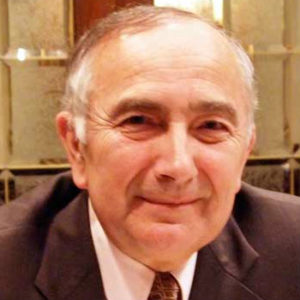
LTG James M. Dubik (U.S. Army, Ret.) is a Senior Fellow at the Institute for the Study of War and a Professor at Georgetown University’s Security Studies Program. General Dubik has extensive operational experience in Iraq, Afghanistan, Japan, Korea, Thailand, Bosnia, Haiti, Panama, and in many NATO countries.

LTG James M. Dubik (U.S. Army, Ret.) is a Senior Fellow at the Institute for the Study of War and a Professor at Georgetown University’s Security Studies Program. General Dubik has extensive operational experience in Iraq, Afghanistan, Japan, Korea, Thailand, Bosnia, Haiti, Panama, Honduras, and in many NATO countries.
His last job on active duty was as Commanding General of the Multinational Security Transition Command-Iraq (MNSTC-I) and the NATO Training Mission-Iraq during the Surge of 2007–2008. He is a member of the U.S. Army Ranger Hall of Fame and a distinguished member of the U.S. Army 75th Ranger Regiment.
General Dubik taught Philosophy at West Point and Campaign Theory and Practice at the U.S. Army School of Advanced Military Studies, Fort Leavenworth, Kansas. He has completed an MIT fellowship program for national security studies as well as executive programs in national security at Harvard’s JFK School of Government and Syracuse University’s Maxwell School of Citizenship and Public Affairs. He is the author, most recently, of Just War Reconsidered: Strategy, Ethics, and Theory.
He holds a Bachelor’s Degree in Philosophy from Gannon University, Erie, Pennsylvania; a Masters in Military Arts and Sciences from the Army Command and General Staff College, Fort Leavenworth, Kansas; and a Ph.D. in Philosophy from the Johns Hopkins University.
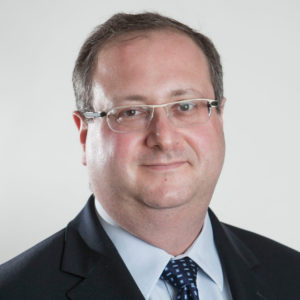
Frederick W. Kagan is a Senior Instructor with the Hertog War Studies Program at the Institute for the Study of War. The author of the 2007 report “Choosing Victory: A Plan for Success in Iraq,” he is one of the intellectual architects of the successful “surge” strategy in Iraq. He is the Director of AEI’s Critical Threats Project.

Frederick W. Kagan is a Senior Instructor with the Hertog War Studies Program at the Institute for the Study of War. The author of the 2007 report “Choosing Victory: A Plan for Success in Iraq,” he is one of the intellectual architects of the successful “surge” strategy in Iraq. He is the Robert H. Malott Chair and Director of the Critical Threats Project at the American Enterprise Institute (AEI).
In 2009, he served in Kabul, Afghanistan, as part of General Stanley McChrystal’s strategic assessment team, and he returned to Afghanistan in 2010, 2011, and 2012 to conduct research for Generals David Petraeus and John Allen. In July 2011, Chairman of the Joint Chiefs of Staff Admiral Mike Mullen awarded him the Distinguished Public Service Award, the highest honor the Chairman can present to civilians who do not work for the Department of Defense, for his volunteer service in Afghanistan.
He is coauthor of the report Defining Success in Afghanistan (AEI and the Institute for the Study of War, 2010) and author of the series of reports Choosing Victory (AEI), which recommended and monitored the US military surge in Iraq. His most recent book is Lessons for a Long War: How America Can Win on New Battlefields (AEI Press, 2010, with Thomas Donnelly). Previously an associate professor of military history at West Point, Dr. Kagan is a contributing editor at the Weekly Standard and has written for Foreign Affairs, the Wall Street Journal, the Washington Post, the Los Angeles Times, and other periodicals.
He holds a Ph.D. from Yale University in Russian and Soviet military history.
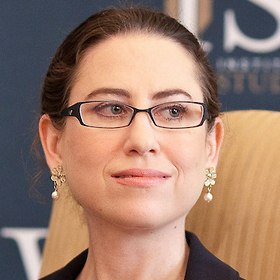
Kimberly Kagan is a Senior Instructor with the Hertog War Studies Program and founder and president of the Institute for the Study of War. She is a military historian who has taught at the U.S. Military Academy at West Point, Yale, Georgetown, and American University.

Kimberly Kagan is a Senior Instructor with the Hertog War Studies Program and founder and president of the Institute for the Study of War. She is a military historian who has taught at the U.S. Military Academy at West Point, Yale, Georgetown, and American University.
Dr. Kagan served in Kabul for seventeen months from 2010 to 2012 working for commanders of the International Security Assistance Force, General David H. Petraeus and subsequently General John Allen. Admiral Mike Mullen, as Chairman of the Joint Chiefs of Staff, recognized Dr. Kagan for this deployment as a volunteer with the Distinguished Public Service Award, the highest honor the Chairman can present to civilians who do not work for the Department of Defense.
Dr. Kagan previously served as a member of General Stanley McChrystal’s strategic assessment team, comprised of civilian experts, during his campaign review in June and July 2009. She conducted many regular battlefield circulations of Iraq between May 2007 and April 2010 while General Petraeus and General Raymond T. Odierno served as the MNF-I Commanding General.
Dr. Kagan held an Olin Postdoctoral Fellowship in Military History at Yale International Security Studies in 2004 to 2005 and was a National Security Fellow at Harvard’s Olin Institute for Strategic Studies in 2002 to 2003. She received her B.A. in Classical Civilization and her Ph.D. in History from Yale University.
Readings:
Discussion:
We will lay out what actually happened in some detail and with some context to ensure we have a coherent understanding of the conflict. The next two blocks will dive more deeply into three of the most important aspects of Russian hybrid operations in Ukraine that are likely to be of relevance in other hybrid conflicts.
Readings:
Discussion Questions:
Hybrid warfare encompasses a disparate set of tools and techniques. We will focus on three: information operations, cyber operations, and unconventional/irregular warfare operations. In the study of information and unconventional/irregular warfare operations we will consider some of the Soviet theories and practices that have shaped and influenced the development of current Russian approaches. For each of the three techniques, we will have to answer the following questions:
Readings:
Discussion Questions:
This block will include some discussion of the Russian worldview and will use Russian military doctrine and foreign policy concept to elucidate the Russian way of thinking about this problem. The focus will be on understanding the Gerasimov doctrine, but we will situate it in the context of Putin’s worldview, the “Primakov doctrine”, and some Soviet context.
Optional Readings:
Readings:
Discussion:
The focus will be on understanding how American thinkers and practitioners have articulated their own views of hybrid/gray zone warfare independent of what they assume the Russians are thinking about it.
Readings:
Discussion Questions:
Discussion Questions:
H. R. McMaster
H. R. McMaster is the Fouad and Michelle Ajami Senior Fellow at the Hoover Institution, Stanford University. Previously, he served as the 26th assistant to the president for National Security Affairs and as a commissioned officer in the United States Army for 34 years before retiring as a Lieutenant General. He is author of Battlegrounds: The Fight to Defend the Free World.
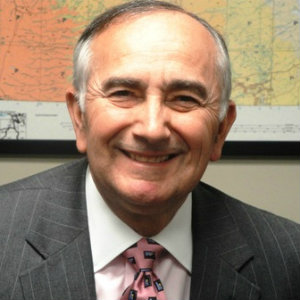
James M. Dubik
LTG James M. Dubik (U.S. Army, Ret.) is a Senior Fellow at the Institute for the Study of War and a Professor at Georgetown University’s Security Studies Program. General Dubik has extensive operational experience in Iraq, Afghanistan, Japan, Korea, Thailand, Bosnia, Haiti, Panama, and in many NATO countries.
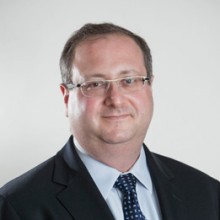
Frederick W. Kagan
Frederick W. Kagan is a Senior Instructor with the Hertog War Studies Program at the Institute for the Study of War. The author of the 2007 report “Choosing Victory: A Plan for Success in Iraq,” he is one of the intellectual architects of the successful “surge” strategy in Iraq. He is the director of AEI’s Critical Threats Project.

Kimberly Kagan
Kimberly Kagan is a Senior Instructor with the Hertog War Studies Program and founder and president of the Institute for the Study of War. She is a military historian who has taught at the U.S. Military Academy at West Point, Yale, Georgetown, and American University.

Vance Serchuk
Vance Serchuk is Executive Director of the KKR Global Institute and an Adjunct Senior Fellow at the Center for a New American Security. Prior to joining KKR, Mr. Serchuk served for six years as the senior national security advisor to Senator Joseph Lieberman (I-Connecticut).
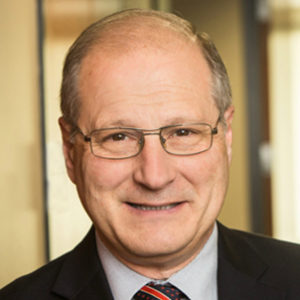
Eric S. Edelman
Eric S. Edelman is a Counselor at the Center for Strategic and Budgetary Assessments and the Roger Hertog Distinguished Practitioner-in-Residence at the Philip Merrill Center for Strategic Studies at Johns Hopkins. He has served as U.S. ambassador to the Republics of Finland and Turkey.

Daniel Blumenthal
Daniel Blumenthal is the Director of Asian Studies at the American Enterprise Institute, where he focuses on East Asian security issues and Sino-American relations. Mr. Blumenthal has both served in and advised the U.S. government on China issues for over a decade.